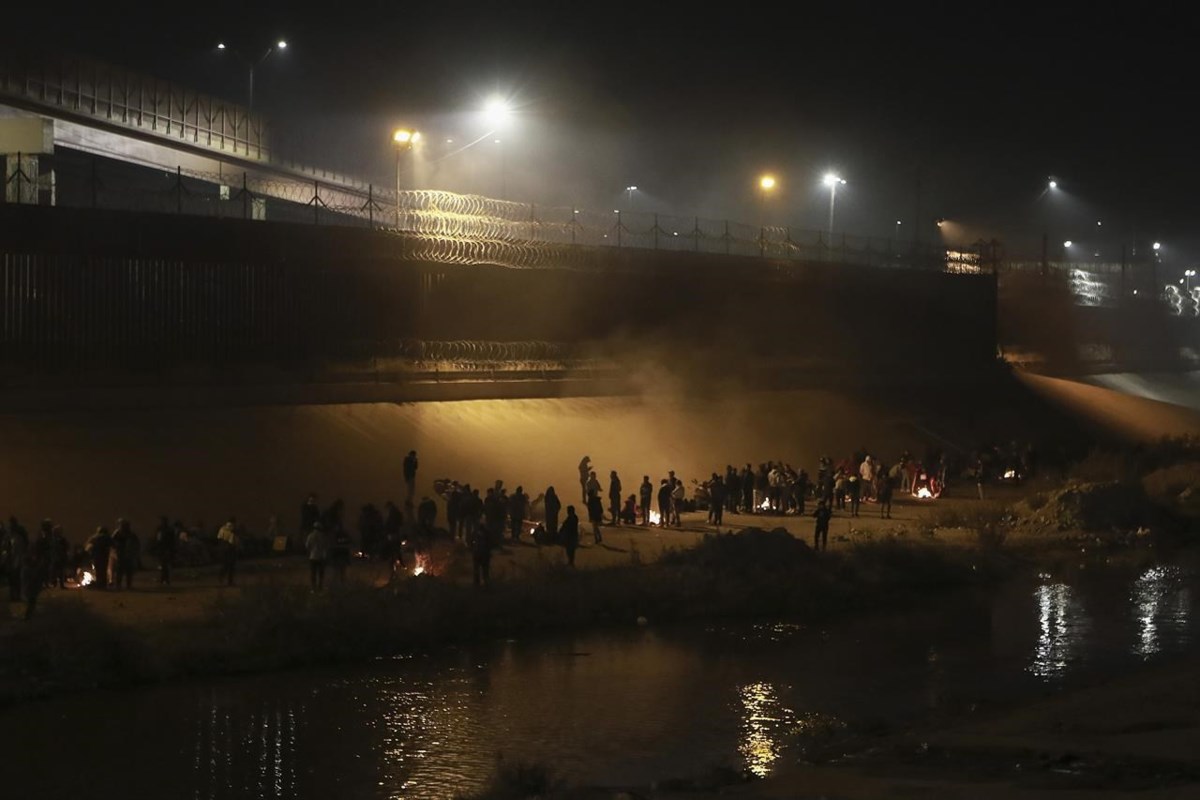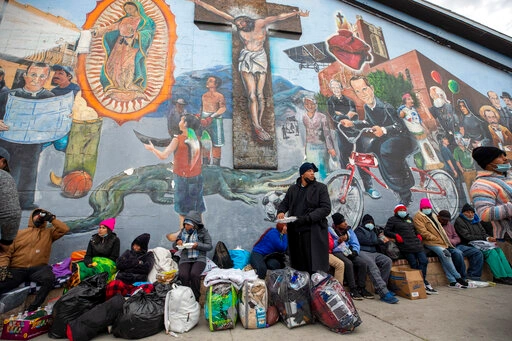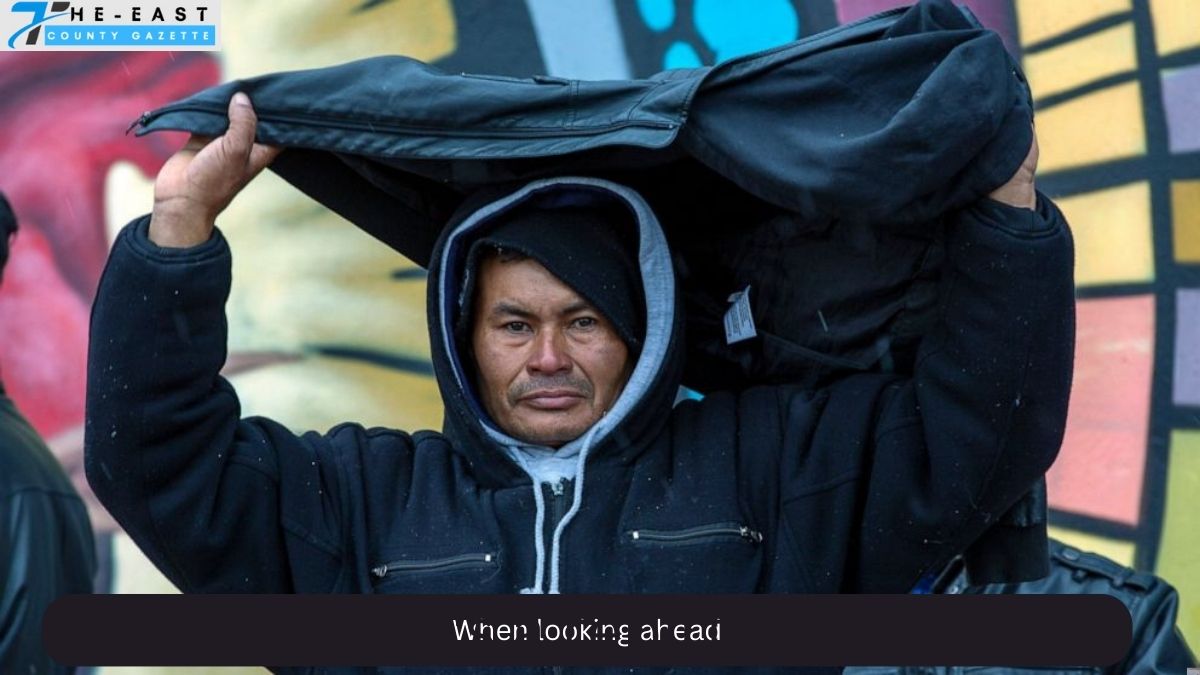As the Supreme Court approved a temporary ruling to leave pandemic-era constraints on migrants on Tuesday, tensions rose along the U.S.-Mexico border about the future restrictions on asylum-seekers.
Conservative-leaning states may have received a temporary respite in their fight to keep a policy that permits officials to reject asylum-seekers. A last-ditch written appeal was sent to the Supreme Court, where it was asserted that an “unprecedented tragedy” would occur at the southern border due to the strain on public services caused by an influx of migrants needing assistance with things like law enforcement and healthcare.
Chief Justice John Roberts issued a temporary restraining order and gave the Biden administration until Tuesday at 5 p.m. to respond. That is just a few hours before the deadline for the restrictions on Wednesday.
DHS, the government department enforcing border security, has accepted Roberts’ order and stated that it will continue “preparations to administer the border in a secure, orderly, and humanitarian way when the Title 42 public health order lifts.”
Since March 2020, when COVID-19 first emerged as a public health concern, Title 42, a public health regulation, has been used to justify denying asylum to 2.5 million migrants in violation of U.S. and international law.
As tensions rise in border towns on both sides of the southwestern United States, the time for deciding is drawing close
 El Paso’s Democratic mayor, Oscar Leeser, issued a warning at the border on Monday, saying that shelters in Ciudad Juárez are full of people waiting to enter the United States illegally.
El Paso’s Democratic mayor, Oscar Leeser, issued a warning at the border on Monday, saying that shelters in Ciudad Juárez are full of people waiting to enter the United States illegally.
In spite of the court order issued on Monday, the city of El Paso has been working feverishly to convert enormous buildings into shelters in preparation for the arrival of 10,000 cots from the Red Cross.
Moreover, local officials have stated their desire to reduce shelter overcrowding by chartering buses to other major cities in Texas or neighboring states in conjunction with non-profit organizations, transporting migrants closer to their families and sponsors. Leeser has promised that the team “will continue to be prepared for whatever is coming through.”
Women and children among the migrants lined up at a church-affiliated shelter a few blocks from the border on Monday afternoon to gain room for the night, accepting food donations from a procession of automobiles delivering gifts. Abandoned blankets and discarded items were retrieved by police and municipal rubbish employees.
A 48-year-old Venezuelan handyman named Jose Natera said he walked for three months to get to El Paso because he lacked the resources to continue his journey, including money and sponsors. He explained, “I have to wait here till I can get a ticket.”
Roberto Lujan and Daniela Centeno, both from El Paso, Texas, distributed fruit, Hostess cakes, soda, and chips to a crowd gathered on a street corner. Lujan, a 39-year-old construction worker, stated, “I have to do it.” “I’m a parent, so I get that.
States with a conservative political bent have stated that if Title 42 is lifted, an influx of migrants will cause a strain on public services, including healthcare and police enforcement. Furthermore, they claim the federal government has no strategy to deal with an influx of migrants, even as Republicans prepare to gain control of the House of Representatives and make immigration a top priority.
Officials from the Biden administration have stated that they have redeployed more personnel and equipment to the southern border in anticipation of Title 42’s expiration. This includes increasing the number of border patrol processing coordinators, the number of eyes on the ground, and the level of security at entry and exit points.
The White House estimates that there are approximately 23,000 agents stationed along the southern border
 Title 42 restrictions, imposed under provisions of a 1944 health law, have been criticized by immigration advocates who argue that they violate American and international obligations to people fleeing to the U.S. to escape persecution and that the justification is no longer valid in light of advances in coronavirus treatment. They filed a lawsuit in November asking a federal judge to end Title 42, and the judge agreed in a ruling that set the deadline for December 21.
Title 42 restrictions, imposed under provisions of a 1944 health law, have been criticized by immigration advocates who argue that they violate American and international obligations to people fleeing to the U.S. to escape persecution and that the justification is no longer valid in light of advances in coronavirus treatment. They filed a lawsuit in November asking a federal judge to end Title 42, and the judge agreed in a ruling that set the deadline for December 21.
Mark Seitz, the Catholic bishop of El Paso, voiced worry on Monday that the stay would prevent migrants who have no other option but to escape their home from even making a case for refuge in the United States, despite their long-simmering need.
I replied, “What happens now with all those on the way?” Mexico, Guatemala, Honduras, El Salvador, and most recently, Venezuela is among the countries whose nationals have been disproportionately affected by Title 42 limitations.
source: abcnews.go.com

